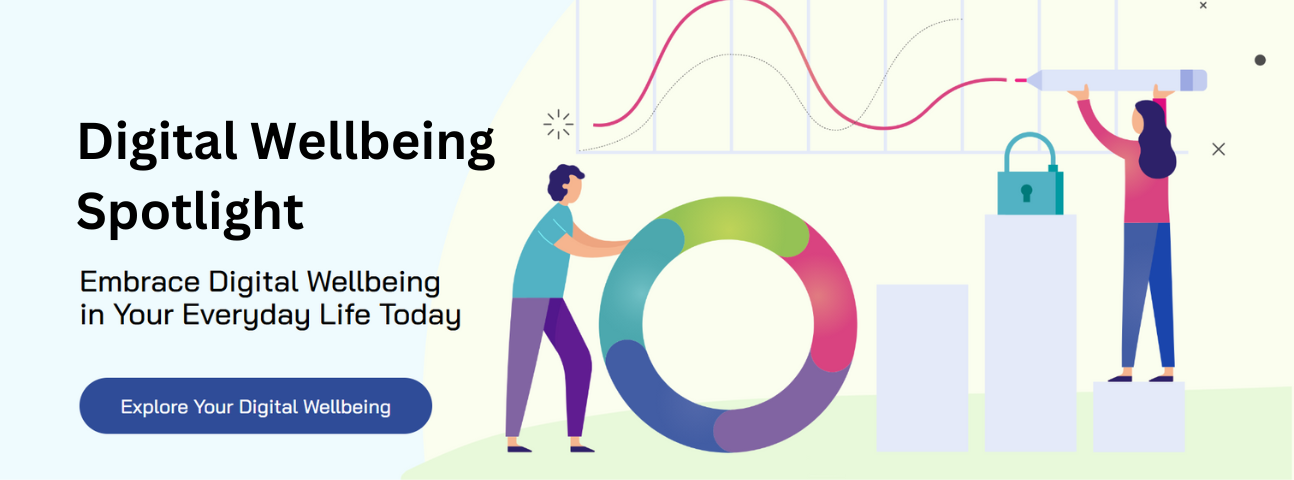
On 15 January 2025, the NUS Centre for Trusted Internet and Community (NUS-CTIC) hosted the Digital Wellbeing Spotlight, marking the conclusion of a three-year research project dedicated to understanding and enhancing digital wellbeing. Held at the innovation 4.0 Conference Room, the event brought together researchers, policymakers, industry leaders, and community members for an engaging discussion on how digital technologies shape lives in an interconnected world.
Recordings of the event are available here:
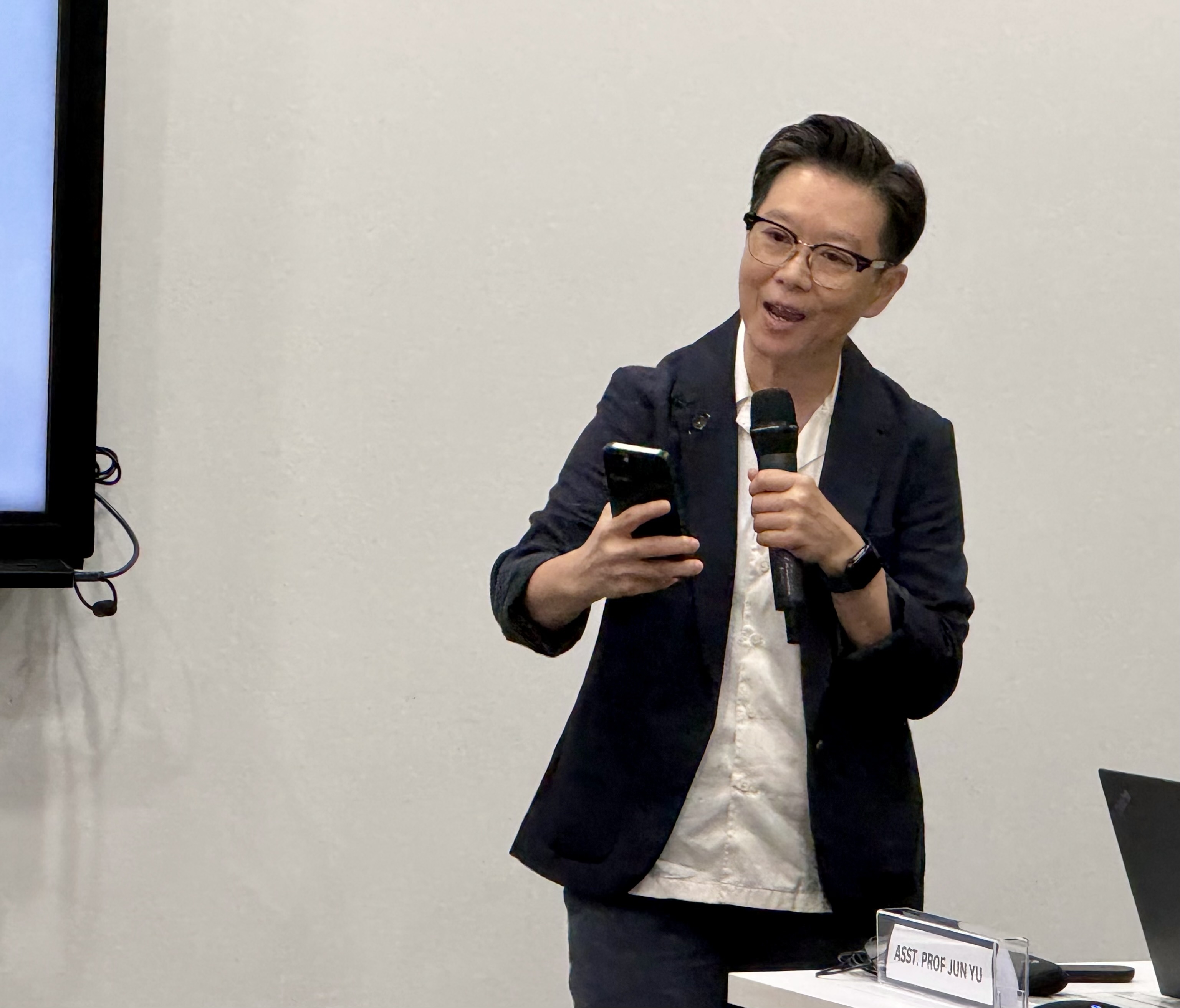
Prof Audrey Yue (NUS-CNM) delivered a captivating opening address on digital wellbeing
The session began with an inspiring opening address by Prof Audrey Yue, Provost’s Chair Professor in the NUS Department of Communications and New Media (NUS-CNM). Prof Yue provided an overview of the three-year digital wellbeing project, which aimed to develop and validate the Digital Wellbeing Indicator Framework to measure digital wellbeing. This research resulted in the Living Well Digitally online assessment tool now used to assess digital wellbeing competencies across diverse population groups, thanks to the support of external partners, including DQ Institute, Touch Community Services, Ministry of Digital Development and Information, Infocomm Media Development Authority, Ministry of Education, and National Library Board.
1. Smartphone Use and Mental Health
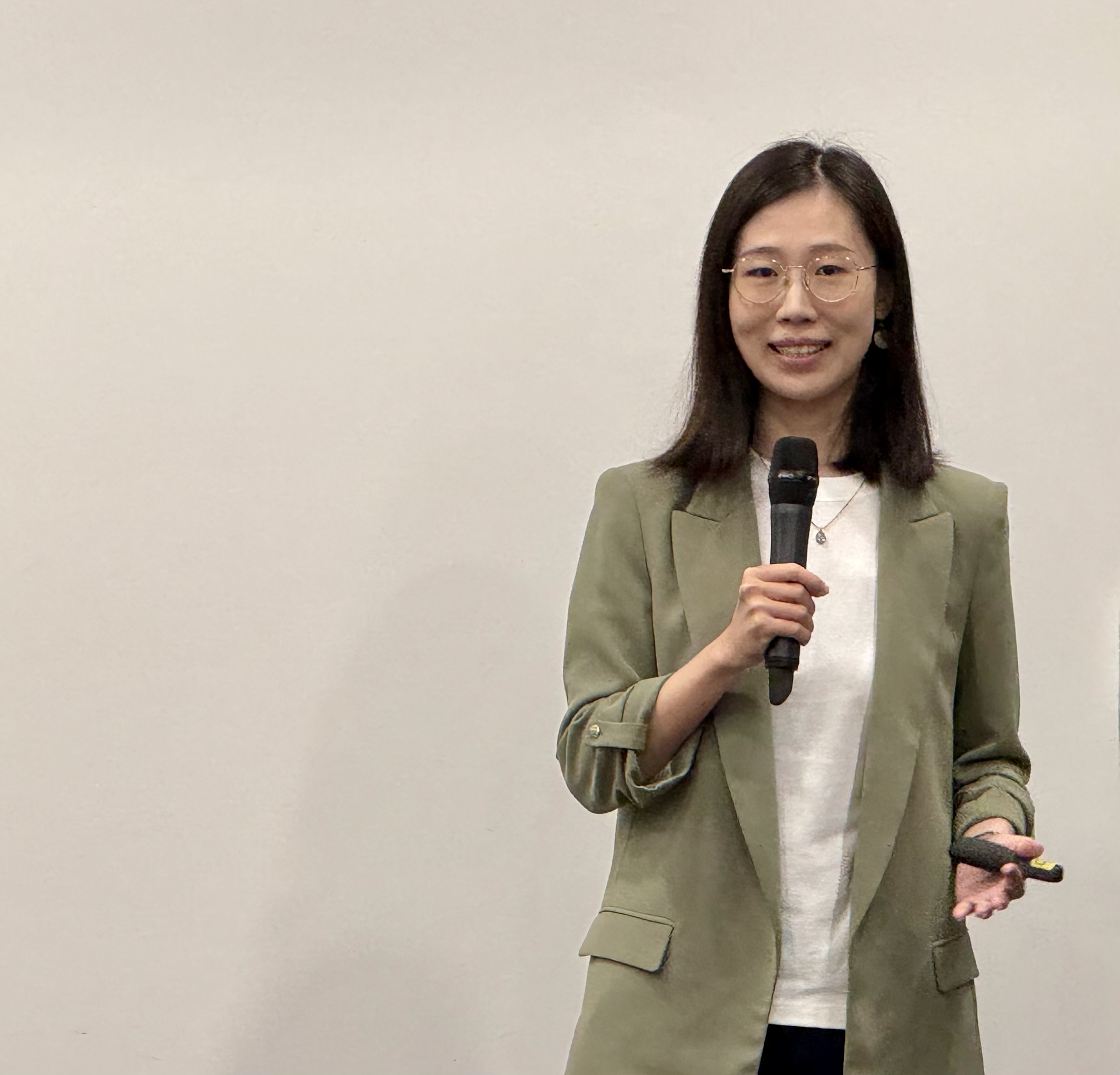
Asst. Prof Renwen Zhang (NUS-CNM) presented her findings on smartphone use and mental health
Asst. Prof Renwen Zhang’s groundbreaking study revealed that screentime alone does not directly influence mental health outcomes such as stress, anxiety, or depression. Instead, the frequent switching between apps was found to negatively affect daily stress levels. Her research highlighted the need to focus on mindful smartphone use and suggested implementing workplace policies to mitigate stress and promote overall wellbeing.
2. Bridging Digital Skills Gaps
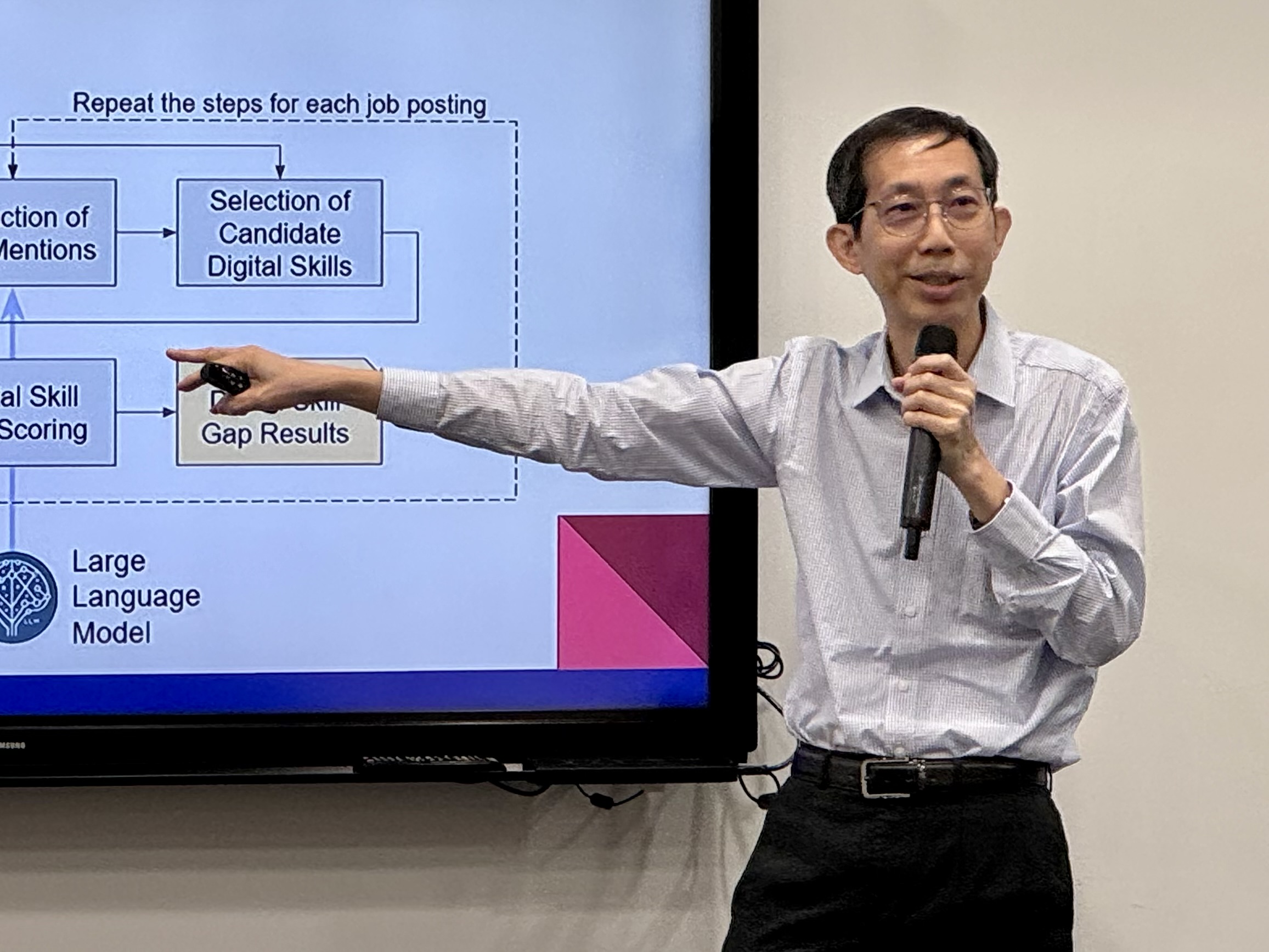
Prof Lim Ee Peng (SMU) presented his findings on closing the gap between occupational knowledge base and industry using a LLM approach
One of the most pressing challenges discussed was the misalignment between digital skills taught in educational institutions and those demanded by the industry. Using AI-powered tools and large language models, Prof Lim Ee Peng analysed job postings to identify critical digital skills gaps in sectors such as media and education. His team proposed innovative strategies, including automating updates to knowledge bases, to keep pace with the evolving demands of the workforce.
3. Women’s Digital Wellbeing
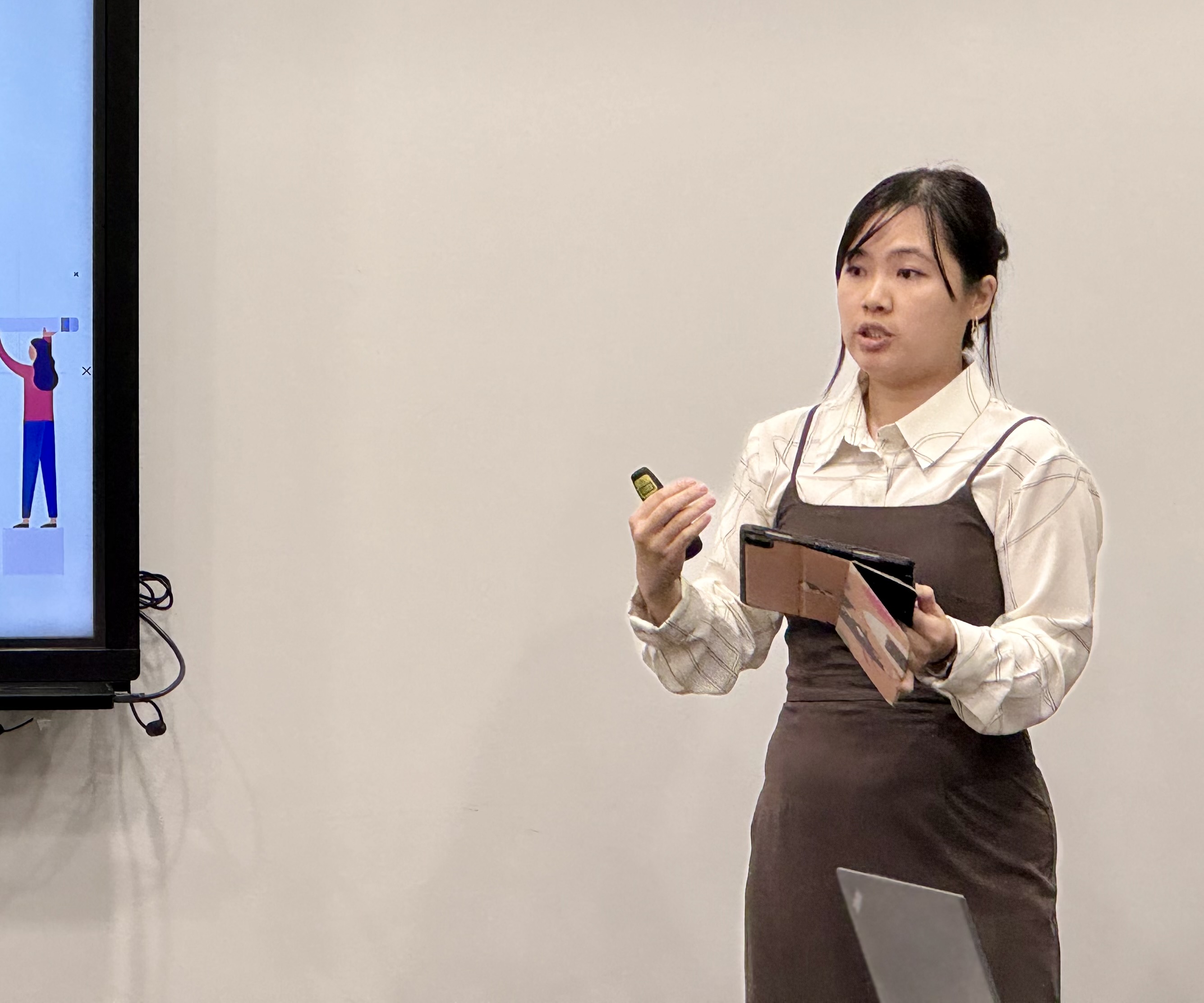
Dr Renae Loh (CTIC) presented her findings on Women’s Digital Wellbeing on Reddit
The spotlight also turned to women’s experiences in digital spaces, focusing on platforms like Reddit. Despite facing significant online risks, women have creatively carved out safe spaces on platforms often criticised for misogyny. Topics such as reproductive rights, civic participation, and personal wellbeing were explored through studies using latent topic modeling. Dr Renae Loh emphasised the paradoxical nature of technology, where the same tools can foster both empowering and suppressive cultures.
Key Takeaways and Calls to Action:
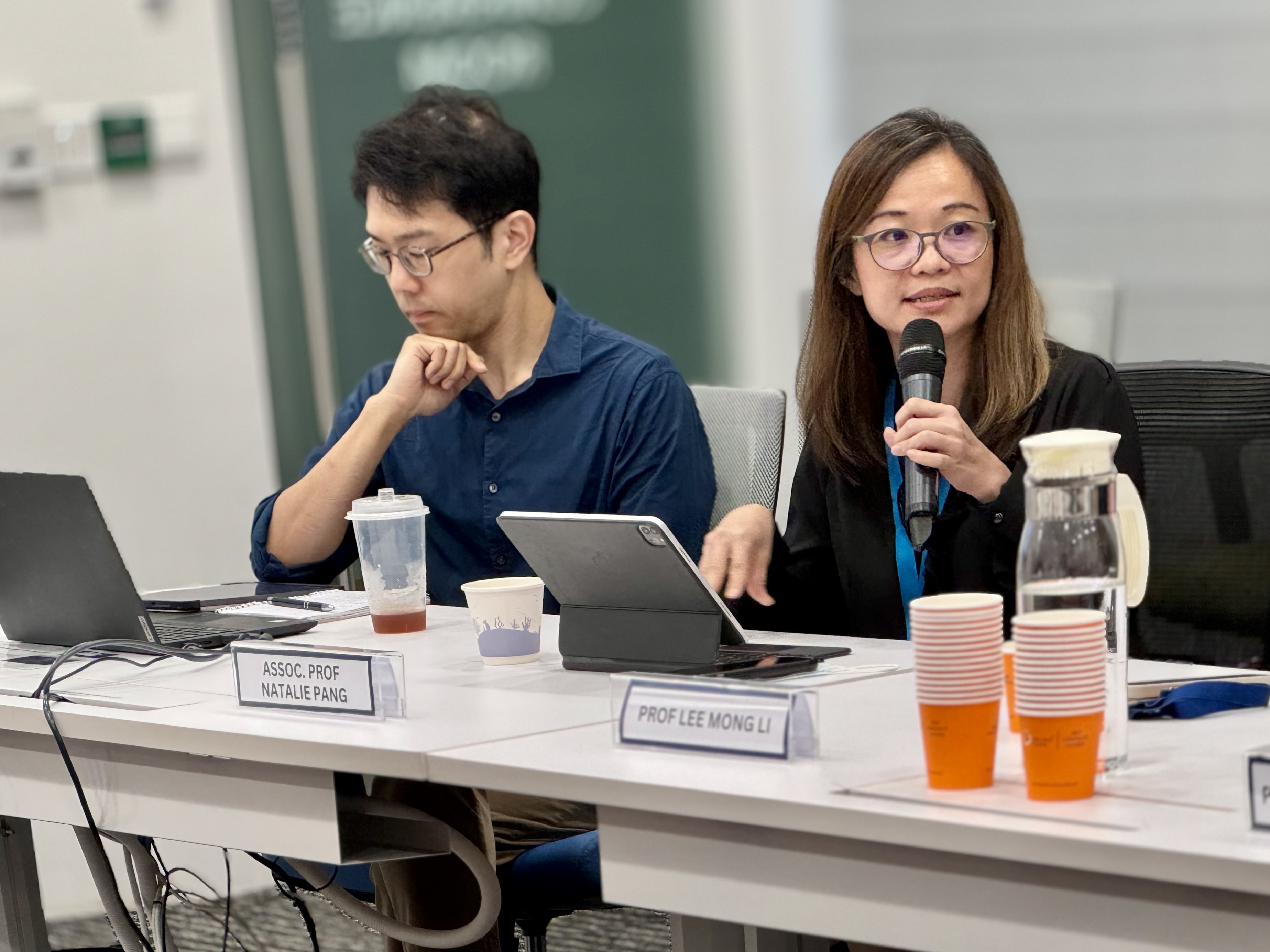
AP/Natalie Pang (NUS-CNM) and Asst. Prof Jun Yu (NUS-CNM) steered a dynamic panel discussion
We extend our deepest gratitude to A/P Natalie Pang and Asst. Prof. Jun Yu, our discussants, for leading dynamic and engaging conversations during the panel discussion. A heartfelt thank you also goes out to all participants, as well as our valued partners and collaborators, for their unwavering support in making this initiative a success.
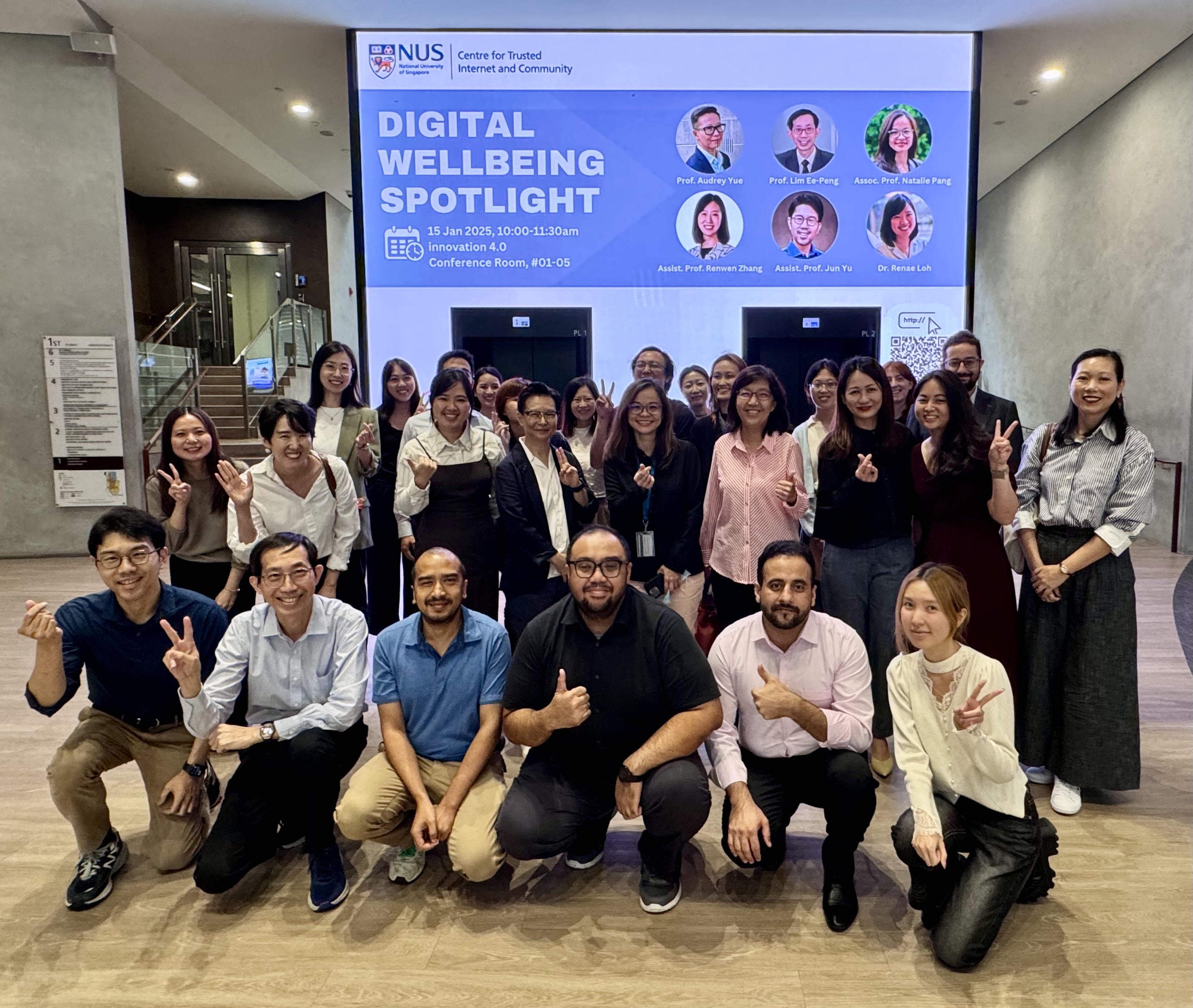
Thank you everyone for joining us at the Digital Wellbeing Spotlight
For more information on our Living Well Digitally initiative, visit: https://ctic.nus.edu.sg/living-well-digitally/.